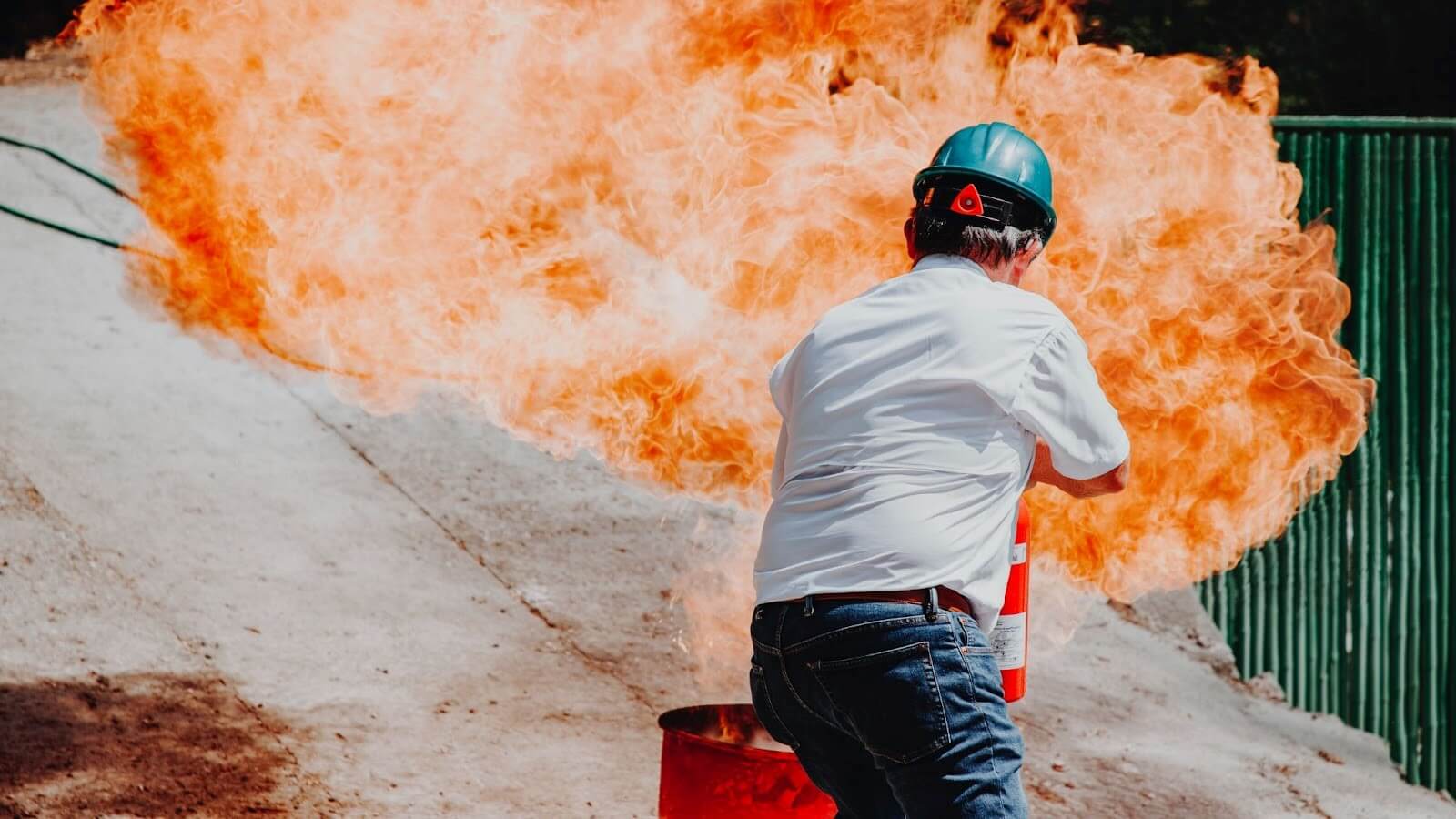When it comes to fire safety, the hospitality sector can be especially prone to the possibility of a fire emergency, largely due to the fact that most hospitality environments involve a commercial kitchen. A lot of heat is generated in these busy kitchen environments. There are open flames, gas, hot oil, ovens, electrical appliances, and much more in use in a commercial kitchen.
This article is going to highlight some tips and fire safety guidance for the hospitality sector, to ensure your business premises is a safe place to be for staff and customers alike.
Fire Blankets In Commercial Kitchens Are a Must
It’s not uncommon for small fires to break out in a commercial kitchen. After all, there is a lot of cooking going on all at once. Most of these fires are a result of food or oil catching alight due to intense heat.
Rather than blasting one of these small fires with a messy fire extinguisher, the most effective way to put out a fire like this is with a fire blanket. It’s quick, clean, and extinguishes a small cooking fire almost instantaneously.
Two types of fire blankets should be kept inside a commercial kitchen. One for putting out small fires caused by combustible oils and a second designed to wrap around a person whose clothing has caught on fire.
Fire Extinguishers Are Also Necessary
In Australia, there are 6 different fire extinguisher classifications and a hospitality environment will generally need to have at least two different types of fire extinguishers on hand:
- Class A Extinguisher – For wood and paper fires
- Class F Extinguisher – To extinguish fires related to combustible cooking oils and fats
Additionally, if gas is being used inside the premises, you might also want to have a Class C fire extinguisher handy, as this one is used for flammable gas fires.
To be sure you have the fire extinguishers you need and that your hospitality business is compliant with the law, call in a fire safety expert to do an inspection. They’ll be able to advise you on exactly what is required when it comes to fire extinguishers for your business.
Have An Evacuation Plan for Employees and Customers
Once again, a fire safety professional can help you work this out. Once an evacuation plan and assembly point have been established, signs depicting this should be prominently displayed throughout the venue, front of the house as well as the back of the house.
It will be up to members of staff to guide customers during an emergency evacuation, so you’ll need to conduct periodic fire drills so everyone who works in the business is trained in evacuation procedures.
Is There a Fire Hydrant Installed Or Located Nearby?
Does your hospitality business have a fire hydrant and fire hose reel installed? If not, is there a fire hydrant located close out on the street for firefighters to gain access to?
Some fires spread too quickly to be contained with the use of one or more fire extinguishers. In this scenario, fire hoses will need to be put into action to control a blaze and get it extinguished. Therefore, having a fire hydrant is an absolute must.
To fully understand the local laws about fire hydrants and businesses, call in a fire safety professional or search the regulations for your state. For example, fire hydrant Qld.
Having access to a nearby fire hydrant could be the difference between saving lives and also saving your business.
Install the Correct Fire Suppression System
A hospitality environment may require different fire suppression systems in different locations throughout the premises. For example, a commercial kitchen may use a different suppression system to the dining area of a restaurant.
To completely understand fire suppression systems and what the best solution is for your business, once again, seek the guidance and assistance of an industry professional. Fire suppression systems don’t just rely on the use of water to douse flames. Some use dry chemicals, mist, gas, or foam, depending on the environment.
The Takeaway
The hospitality industry certainly has its own individual characteristics that will dictate what fire safety equipment you need to have on hand. The best way to know for sure is to consult with a fire safety expert.



